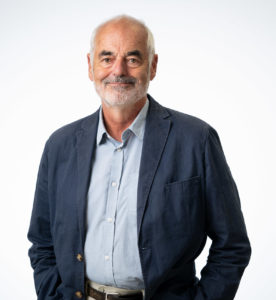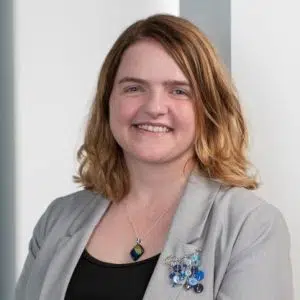The Authority Board has responsibility for setting the overall strategic direction of the organisation, and for promoting and safeguarding the production and publication of official statistics that serve the public good.
1. Introduction
- These Standing Orders should be read in conjunction with Chapter 18 of the Statistics and Registration Service Act 2007. The Act created a ‘Statistics Board’ but by resolution at its first meeting on 2 February 2008 the Board agreed that it would operate under the name of the ‘UK Statistics Authority’.
- These Standing Orders will regulate the procedures of the Authority and of its committees as appropriate.
2. Statutory Framework, Role and responsibilities
- The UK Statistics Authority was established under the Statistics and Registration Service Act 2007 (referred to in the Act as the ‘Statistics Board’) and on 1 April 2008 formally assumed its powers under the Act. The Act gave the Authority the objective of ‘promoting and safeguarding the production and publication of official statistics that serve the public good’. The work of the Board is further defined under secondary legislation made under the Act by the UK Parliament or the devolved legislatures.
3. Statement of Strategy: Statistics for the Public Good
- On 16 July 2020 the Authority published its strategy for the UK official statistics system for the five years from 2020 to 2025.
- Mission
- Evidence produced free from political and commercial influence is a cornerstone of democratic society. It allows for the better formulation and evaluation of public policy; it informs public understanding of the world and our place in it; it informs decision makers to take choices and lets others hold the powerful to account. The collective mission of our official statistics system is: High quality data and analysis to inform the UK, improve lives and build the future.
- Functions
- The Authority’s strategy covers the three principal elements of the UK official statistics system for which the Authority has oversight. The Authority provides professional oversight of the Government Statistical Service (GSS) and has exclusive responsibility for the Office for National Statistics, and for independent regulation.
- Core Principles
- To achieve its mission, the Authority will focus on four core principles which will underpin the work of the statistical system over the next five years. We will be: Radical in taking opportunities to innovate and collaborate, using data for the public good; Ambitious in setting out to answer the critical research questions the public needs answers to, and informing the decisions that citizens, businesses and civil society take; Inclusive in our approach to workforce, talent management, and the design of data, statistics and analysis; and Sustainable in delivering a unique service in a way which delivers value for money through partnership and collaboration. To achieve this, analysts working in the system need to develop their role as communicators. Professional commentary and advice on contemporary issues is what the system is for. Statisticians and analysts should be confident in their ability to provide that impartial view of the world.
4. Chair and Members of the Authority Board
- The Statistics and Registration Service Act 2007 provides for the appointment of the Chair of the Authority by Her Majesty the Queen as a non-executive member of the Board.
- The Act also provides for the appointment of at least five Non-Executive members by the Minister for the Cabinet Office after consultation with the Chair of the Authority and Ministers in the devolved administrations.
- The Minister for the Cabinet Office has, after consultation with the Chair of the Authority, agreed that one of the non-executive members is the Deputy Chair of the Authority.
- The Act also allows for three executive members of the Authority Board, one of whom shall be the National Statistician and the other two being appointed by the Non-Executive members. The Authority Board has determined that the other two executive members of the Board shall be the Authority’s Director General for Regulation and the Permanent Secretary of the Office for National Statistics.
- The other Directors General in ONS may be invited to attend the Authority Board and will be recorded in the minutes as being ‘in attendance’.
- The current membership of the Authority Board is at Annex A to these Standing Orders.
5. Chairing the meeting of the Authority Board
- The Chair of the Authority will conduct all meetings of the Authority Board except that, in their absence, the Deputy Chair of the Authority or another member of the Authority appointed by the Chair of the Authority may take the chair.
6. Calendar of meetings
- The Board of the Authority will usually meet at least eight times a year. See Section 21 about further information about other board and committees of the Authority.
- Committees of the Board, with the exception of the Remuneration Committee, will usually meet at least four times a year at times to suit the business priorities for those committees and the dates will be agreed with the chairs of those committees. The Remuneration Committee will meet at least twice a year.
- The Secretariat of the Authority will publish the dates and venues for the meetings of the Authority and its committees for the following calendar year before the end of May of every year.
- Special meetings of the Authority Board may be called at short notice by the Chair of the Authority.
7. Timing and duration of meetings
- Meetings of the Authority Board will usually start at 10:00 and will usually finish by 16:00.
- Meetings will usually commence with a session of the Non-Executive members only. The Chair will report back on that discussion during his report to the main Board meeting and this will be recorded in the minutes.
- Where the business has not been completed within the agreed time, those members present may resolve to continue the meeting in order to deal with the business notified on the agenda. If not, uncompleted business will be noted in the minutes of the meeting and may be continued at the next ordinary meeting.
- A meeting may be discontinued at any time if the meeting so resolves. If so, a further meeting shall be called as soon as practicable to complete the unfinished business.
8. Notice of meetings
- As described at 6.3 above the dates and venues for meetings for the following business year will be set and published before the end of May of the previous calendar year.
- Written notice of the meetings, agenda and papers will be sent out seven days before the meeting except where a special meeting has been called at short notice.
9. Agenda
- The agenda will be prepared by the Board Secretary in accordance with any determination of the Board and in consultation with the Chair of the Authority.
- Any member of the Authority Board may place an item on the agenda by writing to the Chair and Board Secretary at least two weeks before the meeting.
- Papers that inform agenda items will usually be sent to members of the Authority Board with the agenda seven days before the meeting.
- Late papers may exceptionally be submitted subject to the agreement of the Chair of the Authority.
10. Standing Items
- The agenda for the meeting will usually include reports from committee chairs.
- The Authority Board will receive a report from the Finance Director of ONS at least half yearly.
11. Late items of business / any other business
- The agenda will include “Notification of AOB” immediately after “Apologies for absence” and any member of the Board of the Authority wishing to raise an urgent meeting item must give notice at that point in the meeting.
- The Board of the Authority will then decide whether any such item is to be discussed or, if appropriate, deferred to a subsequent meeting.
12. Attendance
- The Board Secretary will keep a record of those Authority Board members and all other persons present at meetings of the Authority Board and all of its committees.
- Any member of the Authority Board who is unable to attend a meeting of the Authority or a committee of the Authority of which they are a member must send an apology to the Chair of that meeting and this will be recorded in the minutes.
- The arrival and / or departure of any member of the Board of the Authority not in attendance throughout the meeting will be recorded in the minutes.
13. Quorum
- The quorum for all business of the Authority Board is five, of which at least three shall be Non-Executive members.
- Meetings which are not quorate or become so during the course of the meeting cannot pass formal resolutions but can discuss business and make recommendations for consideration at the next meeting.
14. Access to meetings of the Authority Board
- Apart from the members of the Authority Board (as described at 4.4 above), the only other person who will normally attend meetings of the Authority Board in order to give advice is the Board Secretary. The Secretariat of the Authority will also provide a minute secretary for each meeting.
- Other officials of the Authority, ONS or other bodies may be invited to attend.
15. Minutes of meetings
- The minutes of the meetings of the Authority Board will be kept by the Board Secretary.
- Draft minutes will be sent by the Board Secretary to the Chair of the Authority for approval. The draft minutes once approved by the Chair of the Authority will be sent to all members of the Authority Board (including absentees) within one week after the meeting.
- Any dissenting views will be recorded in the minutes of the meeting if that is the wish of an individual member of the Authority Board.
- Actions will be taken on the basis of decisions made at meetings and need not wait the approval of the minutes at the next meeting.
- The approval of the minutes of the previous meeting will be on the agenda of every meeting of the Authority Board and once approved as a true record (subject to any amendments) will be signed and dated by the Chair (or Vice-Chair if absent). The finally approved minutes together with papers considered at the meeting will then be published on the Authority’s website.
16. Discussion and debate
- The Chair, or the person acting in their stead, will ensure that all members of the Authority Board enjoy equal opportunity to express their views.
17. Decision-making
- Authority Board members recognise that all decisions must be made by the Authority Board unless the Authority Board has delegated the function to a committee or individual.
- The Chair may consult the members of the Board if they consider that a formal vote on an issue might be required. In the unlikely event of a need for a vote, only members present at a meeting may vote on decisions and proxy voting is not allowed. A simple majority decides any matter put to a vote. In the event of a tie the Chair of the Authority has a casting or second vote. Voting will be by show of hands.
- Members of the Authority Board share collective responsibility and all decisions of the Authority Board are binding on its members.
- Decisions of the Authority Board may be amended or rescinded at a subsequent meeting of the Authority Board.
18. Urgent action
- The Chair of the Authority may take urgent action or make a decision in between meetings where a delay would be detrimental to the interests of the Authority and a special meeting of the Authority Board cannot be called in sufficient time to deal with the matter.
- If the Chair of the Authority takes any such action it will be notified to the next meeting of the Authority Board if not before.
19. Pecuniary and personal interest
- The UK Statistics Authority maintains a register of the interests of all of its members. Nevertheless, members of the Authority Board are under an obligation to draw attention to any possible pecuniary or conflict of interests whether that has been registered or not.
20. Delegation of functions
- The Authority Board may delegate work to committees of the Authority or individuals or set up working groups to provide information and / or recommendations to the Authority Board.
- The arrangements for delegation will be reviewed at least annually by the Authority Board.
21. Committees
- Committees to which the Authority Board has delegated any of its functions will act strictly in accordance with the terms of delegation.
- The Authority Board will:
- determine the size of committees;
- establish and record terms of reference;
- review terms of reference annually;
- determine the frequency of meetings of committees;
- establish arrangements for reporting back;
- review the need for committees annually; and
- set the quorum for each committee.
- The Chair of the Authority has the right to attend any committee meetings and receives all meeting papers.
- The Chair of the Authority will appoint the Chair and members of each Committee.
- In June 2014, the Authority Board agreed the following to be its committees:
- Regulation Committee;
- Audit and Risk Assurance Committee; and
- Remuneration Committee.
- All committees will report in writing (usually in the form of minutes) to the next meeting of the Authority Board, except where the committee has met immediately prior to the meeting of the Authority Board and then an oral report will be given, and a written report or minutes will be sent to the following meeting of the Authority Board.
- All committees will keep formal minutes and copies will be made available to the Authority Board.
- The Audit and Risk Assurance Committee will also present a report in writing to the June meeting of Authority Board each year on the activities of their committee for the preceding business year.
22. Working Groups
- The Authority Board may establish ad hoc working groups and will:
- determine the size, membership and chairmanship;
- establish terms of reference;
- determine when working groups shall meet and give timetables for delivery; and
- determine procedures for reporting back.
- The Chair of the Authority has the right to attend any meetings of working groups.
- Working groups established for specific purposes will be discontinued when their work has been completed.
- All working groups will present a written report, including recommendations where appropriate, to the Authority Board.
23. Review
- The Authority Board’s effectiveness will be reviewed annually. These Standing Orders will similarly be reviewed on an annual basis.
UK Statistics Authority Central Policy Secretariat, September 2025
Members
Non-Executive members:
- Penny Young (from 13 February 2023, (Deputy Chair from July 2024 & Interim Chair from October 2025)
- Prof. Sir David Spiegelhalter (from 27 May 2020)
- Dr Jacob Abboud (from 13 February 2023)
- Professor Dame Carol Propper (from 13 February 2023)
- Peter Barron (from 31 January 2025)
- Professor Mairi Spowage (from 31 January 2025)
- Dr Sarah Walsh (from 31 January 2025)
Executive members:
- Darren Tierney – Permanent Secretary of the Office for National Statistics (from September 2025)
- Ed Humpherson – Director General for Regulation (from January 2014)
Previous Members:
- Emma Rourke (Director General for Health, Population and Methods from June 2024 and Acting National Statistician from May 2025 to December 2025)
- Sir Robert Chote (Chair, from 1 June 2022 to 30 September 2025)
- Prof. Sir Ian Diamond – National Statistician and Chief Executive (from October 2019 to May 2025)
- Professor Sir John Aston (from 1 July 2021 to 31 December 2024)
- Sian Jones (from 1 July 2016 to 1 July 2024, Deputy Chair from 12 December 2018)
- Nora Nanayakkara (from 1 July 2016 to 1 July 2024)
- Alison Pritchard – Director General for Data Capability (from June 2023 to June 2024 )
- Sam Beckett – Second Permanent Secretary and Deputy Chief Executive (from September 2020 to May 2023)
- Richard Dobbs (from 27 May 2020 to 26 May 2023)
- Professor Jonathan Haskel (from 1 February 2016 to 1 February 2023)
- Professor Anne Trefethen (from 30 June 2018 to 31 December 2022)
- Helen Boaden (from 1 July 2019 to 31 December 2022)
- Sir David Norgrove (Chair, from 1 April 2017 to 31 March 2022)
- Professor David Hand (from 1 April 2013 to 1 July 2021)
- Professor Sir Adrian Smith (from 1 September 2012 to April 2020)
- Prof. Sir Ian Diamond (Non-Executive Director from June 2018 to August 2019)
- John Pullinger (National Statistician, from 1 July 2014 to 30 June 2019)
- Dr. David Levy (from August 2012 to May 2019)
- Professor Adrian Smith (from February 2008 to September 2008)
- Sir Alan Langlands (from February 2008 to April 2009)
- Dame Karen Dunnell, National Statistician (from February 2008 to August 2009)
- Steve Newman (from March 2008 to November 2009)
- Professor Steve Nickell (from April 2008 to October 2010)
- Professor Sir Roger Jowell (from November 2008 to December 2011)
- Sir Michael Scholar (from 2007 (as Chair designate) to April 2012)
- Lord David Rowe-Beddoe (from February 2008 to August 2012)
- Stephen Penneck (from November 2009 to September 2012)
- Sir Jon Shortridge (from February 2010 to October 2012)
- Richard Alldritt, Head of Assessment (from May 2008 to October 2013)
- Partha Dasgupta (from February 2008 to June 2014)
- Dame Jil Matheson, National Statistician (from September 2009 to June 2014)
- Professor David Rhind (from February 2008 to June 2015)
- Carolyn Fairbairn (from April 2013 to September 2015)
- Dame Moira Gibb (from February 2008 to January 2018)
- Dame Colette Bowe (from February 2010 to March 2018)
Board Secretary:
- Sally-Ann Jones (from January 2020)
| 2026 meeting dates |
|---|
| 29 January |
| 26 February |
| 26 March |
| 30 April |
| 21 May |
| 23 June |
| 30 July |
| 24 September |
| 29 October |
| 26 November |
Membership of the Board
Non-Executive Members
The Board has a non-executive majority, and its sub-committees are chaired by non-executive directors.
 Penny Young was the Librarian and Managing Director of Research and Information at the House of Commons, where she oversaw research services for MPs, including the House of Commons Library and the Parliamentary Office of Science and Technology (POST), and had Board level responsibility for information risk. Prior to this she was Chief Executive of the National Centre for Social Research. She holds an MBA from Bradford University.
Penny Young was the Librarian and Managing Director of Research and Information at the House of Commons, where she oversaw research services for MPs, including the House of Commons Library and the Parliamentary Office of Science and Technology (POST), and had Board level responsibility for information risk. Prior to this she was Chief Executive of the National Centre for Social Research. She holds an MBA from Bradford University.
Penny joined the Board on 13 February 2023 for a period of four years.
 Professor Sir David Spiegelhalter is Chair of the Winton Centre for Risk and Evidence Communication at the University of Cambridge, where he leads work between the Centre and actors in fields such as health, media and government to improve the way quantitative evidence is used in society. His background is in medical statistics, particularly the use of Bayesian methods in clinical trials, health technology assessment and drug safety, a field in which he is one of the most cited and influential researchers. He was awarded an OBE for services to medical statistics in 2006. His interest in performance monitoring led to his being asked to lead the statistical team in the Bristol Royal Infirmary Inquiry, and he also gave evidence to the Shipman Inquiry.
Professor Sir David Spiegelhalter is Chair of the Winton Centre for Risk and Evidence Communication at the University of Cambridge, where he leads work between the Centre and actors in fields such as health, media and government to improve the way quantitative evidence is used in society. His background is in medical statistics, particularly the use of Bayesian methods in clinical trials, health technology assessment and drug safety, a field in which he is one of the most cited and influential researchers. He was awarded an OBE for services to medical statistics in 2006. His interest in performance monitoring led to his being asked to lead the statistical team in the Bristol Royal Infirmary Inquiry, and he also gave evidence to the Shipman Inquiry.
Sir David is the author of the 2019 book The Art of Statistics: Learning from Data and was President of the Royal Statistical Society for 2017-18.
Sir David joined the board on 27 May 2020 for a period of three years. In 2023 he was reappointed for a further period of three years, ending on 26 May 2026.
 Dr Jacob Abboud is Managing Partner of Petraenovus Consulting Ltd and previously held board-level positions at Legal & General, Allianz Insurance and AXA UK & Ireland. Jacob has previously served in non-executive roles at Allianz Business Services Limited (Premierline) and the Motor Insurers’ Bureau. He currently serves as a non-executive director at the Driver & Vehicle Standards Agency (DVSA) and the Financial Ombudsman Service, and is a trustee at the Workforce Development Trust. A Chartered Member of the British Computer Society, Jacob holds a PhD in computer-aided engineering from the University of Bath and has a long track record of leading digital transformations in complex organisations.
Dr Jacob Abboud is Managing Partner of Petraenovus Consulting Ltd and previously held board-level positions at Legal & General, Allianz Insurance and AXA UK & Ireland. Jacob has previously served in non-executive roles at Allianz Business Services Limited (Premierline) and the Motor Insurers’ Bureau. He currently serves as a non-executive director at the Driver & Vehicle Standards Agency (DVSA) and the Financial Ombudsman Service, and is a trustee at the Workforce Development Trust. A Chartered Member of the British Computer Society, Jacob holds a PhD in computer-aided engineering from the University of Bath and has a long track record of leading digital transformations in complex organisations.
Dr Abboud joined the Board on 13 February 2023 for a period of four years.
 Professor Dame Carol Propper is a world-renowned economist and an expert in workforce and health statistics. She is currently Professor of Economics at Imperial College Business School in London and Monash University in Melbourne. She is a British Academy Fellow, a member of the Prime Minister’s Council for Science and Technology, an International Fellow of the American National Academy of Medicine, and a former President of the Royal Economic Society.
Professor Dame Carol Propper is a world-renowned economist and an expert in workforce and health statistics. She is currently Professor of Economics at Imperial College Business School in London and Monash University in Melbourne. She is a British Academy Fellow, a member of the Prime Minister’s Council for Science and Technology, an International Fellow of the American National Academy of Medicine, and a former President of the Royal Economic Society.
Dame Carol joined the Board on 13 February 2023 for a period of four years.
 Peter Barron spent more than 20 years in television news and current affairs before moving to a second career in new technology.
Peter Barron spent more than 20 years in television news and current affairs before moving to a second career in new technology.
From 2021 to 2023, he was Global Head of Communications at the online financial services company Stripe. Previously, he spent a decade at Google in various senior roles: Head of Communications and Public Affairs for Europe, Middle East and Africa (2013–2018), Director of External Relations for EMEA (2010–2013), and Director of Communications for the UK, Ireland and Benelux (2008–2010).
He began his television career as a BBC news trainee in 1988. He went on to produce and edit news and current affairs programmes at the BBC, ITV and Channel 4. He was Editor of the BBC’s Newsnight (2004–2008), Deputy Editor of ITV’s Tonight (2002–2003), and Deputy Editor of Channel 4 News (1997–2002).
Peter holds a BSc in European Studies and Modern Languages from the University of Manchester (UMIST).
Now retired, he writes regularly about travel, including three guidebooks to Spain. He is a trustee of the Disasters Emergency Committee and the Quentin Blake Centre for Illustration.
Peter joined the Board on 31 January 2025 for a period of three years.
 Professor Mairi Spowage is the Director of the Fraser of Allander Institute, Scotland’s leading economic research institute at the University of Strathclyde.
Professor Mairi Spowage is the Director of the Fraser of Allander Institute, Scotland’s leading economic research institute at the University of Strathclyde.
Mairi leads research on modelling economic impact, economic measurement, regional economic and trade performance and public sector finances. Mairi has previously held roles as the Deputy Chief Executive of the Scottish Fiscal Commission and Head of National Accounts at the Scottish Government, and has almost 20 years of experience of working in different areas of statistics and analysis.
Mairi joined the Board on 31 January 2025 for a period of three years.
 Dr Sarah Walsh is an Interim Risk Director offering advice to a range of clients in different sectors. She currently serves as a Non-Executive Director at the Royal College of Nursing Publishing (RCNi), including membership of the Royal College of Nursing (RCN) Audit Committee and Equity, Diversity and Inclusion Committee, and as an Independent Non-Executive member of the Audit and Risk Committees for Science Museum Group (SMG), St John’s Ambulance (SJA) and the Royal Institute of Chartered Surveyors (RICS).
Dr Sarah Walsh is an Interim Risk Director offering advice to a range of clients in different sectors. She currently serves as a Non-Executive Director at the Royal College of Nursing Publishing (RCNi), including membership of the Royal College of Nursing (RCN) Audit Committee and Equity, Diversity and Inclusion Committee, and as an Independent Non-Executive member of the Audit and Risk Committees for Science Museum Group (SMG), St John’s Ambulance (SJA) and the Royal Institute of Chartered Surveyors (RICS).
Sarah has 20 years’ generalist experience in Risk and Governance leadership, including Risk Director roles at Telegraph Media Group, Guardian Media Group, Save the Children and Imperial College London. She also served on the Audit Committee of the ICAEW. Prior to risk, Sarah worked as an Aerodynamics Researcher and holds a Masters in Astronautics and Space Engineering from Cranfield University and a PhD in Aerodynamics from the University of Manchester. Sarah has a track record in helping organisations understand and manage risks and opportunities in support of achieving and optimising strategic and operational objectives, with expertise in strategy, operations, audit, risk and data governance.
Sarah joined the Board on 31 January 2025 for a period of three years.
Executive Members
The Authority Board has two executive members: The Acting National Statistician and the Director General for Regulation.
Darren became Permanent Secretary at the Office for National Statistics (ONS) in August 2025. Prior to this, he was Director General, Propriety and Constitution Group, holding that role since March 2023. Before this, he joined the Cabinet Office as Director General, Propriety & Ethics in March 2021.
As Permanent Secretary, Darren is responsible for the day-to-day running of the organisation, including leading ONS’s organisational transformation following the Sir Robert Devereux review. As Chair of the Executive Committee (ExCo), Darren sets the strategic direction of ONS and oversees the production and dissemination of ONS’s portfolio of statistics. As Accounting Officer, Darren is accountable for delivery of ONS’s function, performance and value to Parliament.
Before joining the Cabinet Office, Darren served as Director of Strategy, from 2016 to 2019, in the Department for International Trade (DIT) and then as Director General for Global Trade and Investment from 2019 to 2021. Before working at DIT, Darren held a number of different roles in the Civil Service, including nine years at the Ministry of Justice where he was responsible for a range of civil and criminal justice policy, including stints as Director of Youth Justice policy and as Principal Private Secretary to the Rt Hon Kenneth Clarke.
Darren spent the early part of his career working on a range of policy roles in transport and housing after studying business administration and modern languages at Queen’s University Belfast.
 The post of Head of Assessment is a statutory post under the provisions of the Statistics and Registration Service Act 2007. The Head of Assessment is the Authority’s principal adviser on the assessment and reassessment of official statistics and their compliance with the Code of Practice for Statistics, and is operationally known as the Director General for Regulation.
The post of Head of Assessment is a statutory post under the provisions of the Statistics and Registration Service Act 2007. The Head of Assessment is the Authority’s principal adviser on the assessment and reassessment of official statistics and their compliance with the Code of Practice for Statistics, and is operationally known as the Director General for Regulation.
Ed Humpherson was appointed as Director General for Regulation in October 2013 and took up post in January 2014.
Prior to joining, Ed was a Board Member and Executive Leader for Economic Affairs at the National Audit Office, a post he held since July 2009. This role included responsibility for the overall strategic direction of NAO’s work on economic affairs.
Amongst other previous responsibilities, Ed oversaw the NAO’s response to the recent financial crisis through building capability in capital markets and financial services work. He also coordinated the NAO’s programme of work on the administration of the tax system and the welfare system; led the NAO’s work on public private partnerships and major infrastructure developments, including in transport and energy; and oversaw the development of the NAO’s audit of the Whole of Government Accounts.
Between 2007 and 2009, Ed Humpherson was Assistant Auditor General, and before that was NAO’s Director of Regulation between 2003 and 2007. Ed joined the National Audit Office in 1993.
Ed Humpherson was educated at the University of Edinburgh where he obtained a first-class MA honours degree in Politics and Economic History.
Ed is a Chartered Accountant and a member of the Institute of Chartered Accountants in England and Wales. Ed is married and has three children.
Register of Interests & Former Members
| Name | Role | Outside Interests |
|---|---|---|
| Dr Jacob Abboud | Non-Executive Director | • Managing Director, Petraenovus Consulting (founder) • Non-Executive Director, Driver & Vehicle Standards Agency, Department for Transport • Non-Executive Director, Financial Ombudsman Service • Trustee at the Workforce Development Trust • Independent Non-Executive Director Chair at MS AMLIN Business Services |
| Peter Barron | Non-Executive Director | • Trustee, Disasters Emergency Committee • Trustee, Quentin Blake Centre for Illustration |
| Pete Benton | Deputy National Statistician for Health, Population and Methods | None |
| Ed Humpherson | Director General for Regulation | • Vice Chair of Motability, the charity supporting the mobility of disabled people. • Trustee, Pro Bono Economics • Trustee, Security Women |
| Alison Pritchard | Deputy National Statistician for Data Capability | • Member, Digital Advisory Panel, Gambling Commission |
| Professor Dame Carol Propper | Non-Executive Director |
• Professor of Economics, Imperial College London • Adjunct Professor of Economics, Monash University, Australia • Research Associate, Institute for Fiscal Studies (IFS) • Council member, Royal Economic Society • Life Vice President of the Royal Economic Society • Fellow of the British Academy, US National Academy of Medicine, CEPR, Academy of Social Sciences • Member of the Council for Science and Technology |
| Professor Sir David Spiegelhalter | Non-Executive Director | • State Pension • USS Pension • Patron of the Karuna Trust charity • Fees from occasional journalism and talks, and royalties from books about statistics |
| Professor Mairi Spowage | Non-Executive Director | • Economic Statistics Centre of Excellence, Executive Board Member |
| Dr Sarah Walsh | Non-Executive Director | • Director, RiskLead Ltd (Founder) – Risk Management Consulting Services (newly established in Sept 2024) • Non-Executive Director and Deputy Chair, Royal College of Nursing Publishing (RCNi) • Independent Non- Executive Member of the Audit, Risk and Finance Committee, Royal Institute of Chartered Surveyors (RICS) • Independent Non-Executive member of the Audit and Risk Committee, Science Museum Group (SMG) • Independent Non-Executive member of the Risk and Assurance Committee, St John’s Ambulance (SJA) • Non-Executive Director – Oxfam Governance Committee (starts Feb 2025) • Husband, Director, Customer Operations and Infrastructure, CO&I - KPMG |
| Penny Young | Non-Executive Director | • Civil Service Pension • BBC Pension • Which? Pension • NatCen Social Research Pension • Volunteer Grant Assessor, Baily Thomas Charitable Fund (from July 2023) • Member of Glas Cymru (from 31 October 2024) • Chair of Llangattock Green Valleys Community Benefit Fund (from October 2024) |
SCS outside interests
| Profession | Outside Interest (renumerated) |
|---|---|
| Government Economic Service Profession | Quality Assurance Economist, Kent, Surrey and Sussex Academic Health Science Network |
| Government Statistical Service Profession | Expert member, International Monetary Fund |
| Operational Delivery Profession | Travel agent, InteleTravelUK |
| Government Project Delivery Profession | Private yoga teacher |
- Emma Rourke (Director General for Health, Population and Methods from June 2024 and Acting National Statistician from May 2025 to December 2025)
- Sir Robert Chote (Chair, from 1 June 2022 to 30 September 2025)
- Professor Sir Ian Diamond FBA FRSE FAcSS (Non-Executive Director 1 June 2018 to 5 August 2019, National Statistician 22 October 2019 to 9 May 2025)
- Professor Sir John Aston (from 1 July 2021 to 31 December 2024)
- Sian Jones (from 1 July 2016 to 1 July 2024, Deputy Chair from 12 December 2018)
- Nora Nanayakkara (from 1 July 2016 to 1 July 2024)
- Alison Pritchard – Director General for Data Capability (from June 2023 to June 2024 )
- Sam Beckett (Second Permanent Secretary from August 2020 to May 2023)
- Richard Dobbs (from 27 May 2020 to 26 May 2023)
- Professor Jonathan Haskel (Non-executive Director 1 February 2016 to 1 February 2023)
- Professor Anne Trefethen (from 30 June 2018 to 31 December 2022)
- Helen Boaden (from 1 July 2019 to 31 December 2022)
- Sian Jones (Interim Chair 1 April 2022 to 31 May 2022)
- Sir David Norgrove (Chair 1 April 2017 to 31 March 2022)
- Professor David Hand (Non-Executive Director from 1 April 2013 – 1 July 2021)
- Professor Sir Adrian Smith FRS (Non-Executive Director 1 April 2008 to 1 September 2008, and again from 1 September 2012 to 31 March 2020)
- Professor Sir Ian Diamond FBA FRSE FAcSS (Non-Executive Director 1 June 2018 to 5 August 2019)
- Dr David Levy (Non-Executive Director 1 August 2012 to 31 May 2019)
- Dame Colette Bowe DBE (Non-Executive Director 1 April 2008 to 31 March 2018)
- Dame Moira Gibb DBE (Non-Executive Director 1 February 2008 to 31 January 2018)
- Sir Andrew Dilnot CBE (Chair 1 April 2012 to 31 March 2017)
- Carolyn Fairbairn (Non-Executive Director 1 April 2013 to 30 September 2015)
- Professor David Rhind (Deputy Chair (Statistics System) 1 July 2012 to 30 June 2015)
- Partha Dasgupta (Non-Executive Director 1 April 2008 to 30 June 2014)
- Sir Jon Shortridge (Non-Executive Director 1 February 2010 to 30 October 2012)
- Lord David Rowe-Beddoe (Deputy Chair (ONS) 1 April 2008 to 31 August 2012)
- Sir Michael Scholar KCB (Chair 1 April 2008 to 31 March 2012)
- Professor Sir Roger Jowell CBE (Deputy Chair (Statistics System) 11 November 2008 to 25 December 2011)
- Professor Stephen Nickell CBE FBA (Non-Executive Director 1 April 2008 to 31 October 2010)
- Sir Alan Langlands FRSE Non-Executive Director (1 April 2008 to 12 April 2009)

